By Sonali Das
In 2014, my grandmother flew halfway around the world to get from her home, a small Assamese silk village in northeast India known as Sualkuchi, to my home in Lincoln, a small town in Massachusetts. It was her first time stepping outside the world of temples and chador mekhelas she had known all her life. Yet, despite never traveling far, she had heard about our town many times over the years.
Lincoln, as most people know, is home to Walden Pond, which homed the renowned transcendentalist philosopher, Henry David Thoreau. Thoreau was inspired by Hinduism in his approach to live simply and with an open and inquiring mind, saying, “Whenever I have read any part of the Vedas, I have felt that some unearthly and unknown light illuminated me.” In turn, many Hindus, including Gandhi, were inspired by his determination to live life simply and with peaceful, strong conviction. My grandfather, Krishna Ram Das, was one of them and had always wanted to visit Thoreau’s sacred pond. He even composed a poem, “I am a Tree,” and recited it in a seminar held on Thoreau in 1965.
My grandfather died of lung cancer in 1994. Twenty years later, in 2014, my grandmother sprinkled pink petals into the waters of Walden Pond (see photo gallery below) to inaugurate the Thoreau Laboratory for Global Health, a research laboratory dedicated to fighting the medical cancer that killed him as well as the impending societal and environmental cancers that threaten us all.
My grandfather planted the initial seedlings of the Thoreau Laboratory for Global Health. A weaver, philosopher, poet, and the father of nine children, he lived in a humble home with earnings even more so. And yet, his dreams filled the walls of his small house, his ideas formed the lines of his complex poetry, and his hands fought to revive an organization called the Krishna Samaj, founded by his grandfather back in 1920 to protect local weavers from Britain’s textile aggression. Krishna Ram Das wanted to transform it into a cooperative movement among the weavers’ community.
My dad, Bikul Das, one of eight siblings, grew up in the same small village as his father. A budding philosopher, poet, silk businessman, and dreamer, he worked with his dad during his childhood in the family’s Muga silk business. Muga, known for its golden threads and extreme durability, is a culturally significant silk native to the state of Assam. Making grafts for his father and networking with traders in his village, my dad grew up wanting to be a politician. Instead, he went to medical school, became a doctor, traveled to Bhutan, and a couple stories later, wounded up as a stem cell/cancer scientist working with the University of Toronto, Stanford University, and the Harvard-affiliated Forsyth Institute.
Dr. Bikul Das discovered altruism on a microbiological level, and thus became a pioneer in the research field of stem cell altruism. Years later, he studied COVID-19’s relationship to stem cells and dormant TB reactivation. Interestingly, his core scientific findings stemmed from the philosophical ideas discussed in the Krishna Samaj. Thus, in 2010, he officially setup KaviKrishna Laboratory, now located at the Indian Institute of Technology at Guwahati, as a continuation of the Krishna Samaj. The Thoreau Laboratory for Global Health, set up in 2014, is its sister laboratory located at UMass-Lowell. Both the Thoreau Lab for Global Health and KaviKrishna Lab look to engage scientists and graduate students excited about cancer, stem cells altruism, and related research.
As a high school graduate with a gap year ahead, I decided to explore this complex story further. My journey took me on an expedition to Sualkuchi, (Here is a beautiful video two of my Indian cousins made of my experience in Assam), where I spent five months working with graduate students to develop a Medical Humanities program centered around KaviKrishna’s rural medical oncology clinic.
As a high school graduate (Lincoln-Sudbury Class of 2022) with a gap year ahead, I decided to explore this complex story further. My journey took me on an expedition to Sualkuchi, where I spent five months working with graduate students to develop a Medical Humanities program centered around KaviKrishna’s rural medical oncology clinic. Here’s a video that two of my Indian cousins made of my experience in Assam, and another video of a talk I gave about the program itself.
Through the work, I was immersed in a dynamic experience awash with interactions of people from every level of society, festivals rich with song and color, visits to cancer patients, and broken Assamese conversations. I came to understand KaviKrishna’s ultimate purpose: to uplift the culture and society of the weavers and artisans living in Sualkuchi and greater Kamrup (also in northeast India) through grassroots project-based initiatives and hardcore academic research. Through its Medical Humanities program, the Thoreau Laboratory aims to bring these research efforts, inspired by the weaving community, to the globe.
Currently, as an intern at both the Thoreau Lab for Global Health and KaviKrishna Lab, I am editing my dad’s book on “Recovering the Spirit of Jiva Upakara Tantra” that will illuminate the intricacies of this evolving research story. My experience working in these two organizations has given me an incredible window into the power of interdisciplinary research and its relevance in a time riddled with individual, environmental, and societal cancers. I have already introduced two Lincoln residents (Prerna Karmacharya and Alexander Payne) to the organization in their week-long visit to Assam. As I begin my undergraduate journey at Bowdoin College, I hope to continue to help develop the Medical Humanities program and bring its ideas to the liberal arts community.
If you’re inspired by my story, the Thoreau Laboratory is currently looking for high school and college students interested in developing their own projects related to biology, philosophy, sociology, etc. with a focus on stem cell work, altruism, and Hindu philosophy/education as a part of the Medical Humanities program. It is also looking for volunteers interested in developing a digital public relation project for KaviKrishna/Thoreau Lab through its YouTube and social media accounts. All participants will get a certificate from the lab following a successful completion of an agreed-upon project. Interested students can also join our weekly philosophical meetings co-led by Simon Karty to discuss the philosophy of Thoreau, Gandhi, science, and healthcare.
KaviKrishna and Thoreau Lab would love to hear from you! Find us at www.kavikrishnalab.org or www.thoreaulab.org, or email sonalisdas14@gmail.com or bdas@thoreaulab.org.
Lincoln resident Sonali Das will start her studies at Bowdoin College next month.
“My Turn” is a forum for readers to offer their letters to the editor or views on any subject of interest to other Lincolnites. Submissions must be signed with the writer’s name and street address and sent via email to lincolnsquirrelnews@gmail.com. Items will be edited for punctuation, spelling, style, etc., and will be published at the discretion of the editor. Submissions containing personal attacks, errors of fact, or other inappropriate material will not be published.
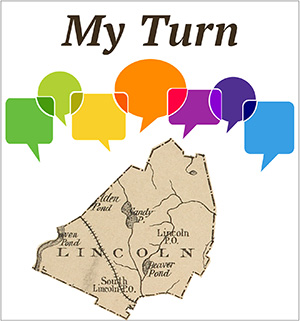
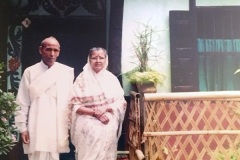
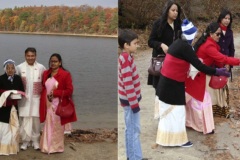
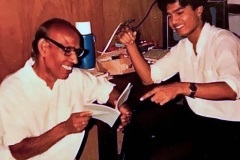
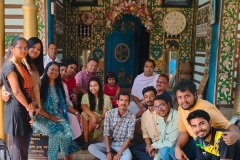
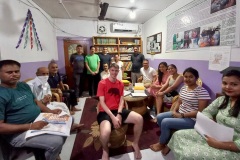
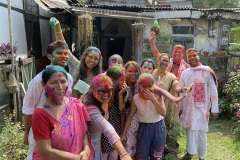
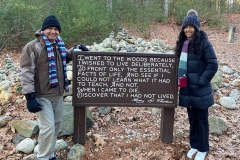
Dear Sonali,
Thank you for sharing your fascinating background and experiences in Assam at the Kavi Krishna Lab these past months and now at the Thoreau Lab for Global Health. You are on such an interesting and important journey of learning across generations, geographies, disciplines, cultures, and philosophies. How splendid and wise to take a gap year to put you on this trajectory.
It was such a good idea to include the links, including to your delightful “America to Assam” video. And all your links worked!
Bowdoin will be fortunate to have you joining its freshman class. Good luck this upcoming academic year. I hope you will find an opportunity to keep your Lincoln neighbors informed as this work continues.
Barbara Slayter
Thank you for your kind words! It was an experience of a lifetime
So glad you enjoyed the video, my cousins spent two months putting it together. Wasn’t easy, but it turned out amazing
Assam is on my bucket list, having visited most other states, some several times. I hope to get back to India at least one more time.
Excellent essay!
Thank you! You should definitely give Assam a visit. Especially during Bihu, it’s amazing
Thank you for this great article! I’m really excited for what you and the Thoreau Lab are doing. Keep up the excellent work.